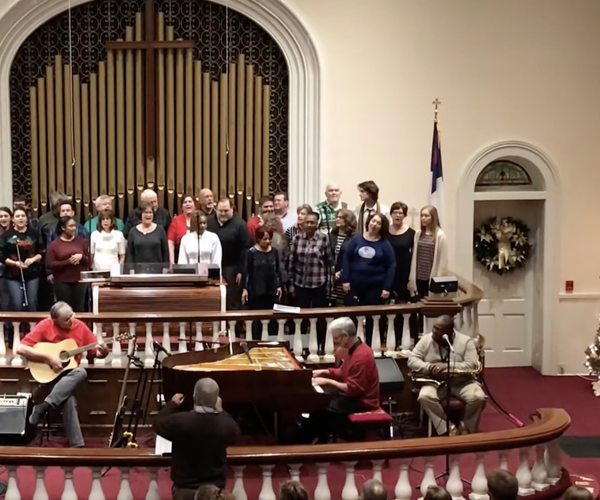What of the past do we keep? Why is it important for us to remember what events happened before our time? We are much like the turtle found on top of the fence post; we know one thing for sure: that turtle didn’t get there by himself. Yesterday is the one day we cannot change. Whatever our history is, it is our history. And by remembering our past we learn valuable lessons as well as appreciation for those who sacrificed for us.
We were all shocked and sadden by the massacre in Charleston S.C. on June 17. Nine innocent persons were shot at the Emanuel Methodist Episcopal Church at a Bible Study. The shooter, Dylann Roof, was seen pictured with a Confederate Battle Flag. This caused the flag to be removed from the Capital Grounds of South Carolina as well as a ban from selling the battle flag or products bearing its image by most major national retailers. Over the years, for many the meaning of the flag has changed. It has become a symbol of racism and hate.
There have been calls for other changes as well, such as adding to or removing the carvings on Stone Mountain. The question is: do we try to erase the past? Or do we honestly look at it and appreciate what was done for us that we might be who we are today? The challenge is to learn the lessons of the history that made us who we are, without always agreeing with what others have done with those memories.
The Covington/Newton County area was very much a part of the Civil War. There is a beautiful marker on the Square that is a part of the Georgia Civil War Heritage Trails. There is also a marker for the same trail in Oxford. The one on the Square tells of the three times when Union forces, under Sherman’s command, came to Covington. Twice in July 1864 during the Battle for Atlanta, once to destroy the rail bridges over the Yellow and the Alcovy Rivers. The other to forage for food supplies. Then in November of that year, the “left wing” of Sherman’s March to the Sea came down what is now Emory Street to Clark/Floyd Street. With flags flying and bands playing it is reported to have taken from nine in the morning until late at night for all the troops to get through town.
The reaction to those marching through town varied greatly among the folks of Covington. The marker tells us that slaves gathered around the Union forces as saviors. While others, who perhaps had loved one fighting against the Union, had a very different reaction. How we respond to history or current events has much to do with what we see as our interest and needs.
There are other reminders of this time in our history around us. The Covington First Methodist Church and The Old Church in Oxford were hospitals for the Confederate wounded. Kitty’s Cottage in Oxford was the home provided for Kitty Andrews. She was a slave that Bishop Andrews of the then-Methodist Episcopal Church inherited and under the laws of Georgia could not set free. He attempted to pay her passage to Liberia where other free slaves were settling, but she refused to leave the land she knew as home so he provided for her the best he could. This decision in 1844 led to the split of the Methodist Episcopal Church. The split would not be healed until 1939.
Our family is a good example of different perspectives. I had great grandfathers that fought in the ranks of the Confederacy while Linda, my wife of over fifty years, had grandfathers that proudly fought in the Union Army. For our children and grandchildren it is no longer a matter of being on one side of history or the other.
One reminder of that era that I have treasured is a small cast iron pot we have. It was the only thing that remained of my great grandparents’ farm in Sugar Valley, GA, after some of Sherman’s forces torched it. At the time my great grandfather was a prisoner of war in the north. He was never a slave owner but I am told saw his role as defending his family and state. When he returned to his farm that then laid in ruins, the little pot was all he could salvage. It serves as a reminder to me, not of the days of slavery and war, but rather as a lesson in survival against the odds. It is a reminder that the way was not always easy for those who came before us, but we are who we are because of them.
Our task with our heritage is not to defend it or change it. Yesterday is the one day we cannot change. But rather our task is to learn from the experiences of those who came before us. We need to allow everyone to treasure their own personal story from the perspective of who they are. And together, with those who have a far different perspective perhaps, to build a mutual respect that will make us even stronger for the future. Our role is not to erase the past, but to build the future.





